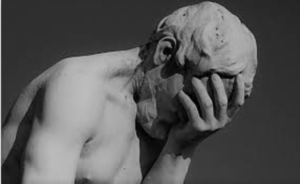“A man is not old, until his regrets
take the place of his dreams”
The Cicadas are dying! For the past four weeks their “Hum” was the first sound that greeted me each morning, and as I drank my coffee, read the morning paper and planned my day, their steady chorus became part of a growing symphony that included birds, lawnmowers and morning traffic. Soon they will be gone and be but a memory, until they re-emerge in seventeen years. I’m adding that to the bucket list, “Listen to Brood XI Cicadas”. I’ll be 87 then and will probably need a hearing aid to enjoy their chorus, but what the hell….one more thing to live for.
I’ve come to learn that life is about looking forward. It’s much like driving a car, we need to keep our eyes on the road ahead. Yes, there is a rear-view mirror, but if that is where we focus our attention, I need not tell you the outcome. That mirror serves one primary purpose, it lets us see where we have been, and there is value in taking the occasional glance to check-in, so to speak, on what we have passed by. The problem arises when we pull to the side of the road and put our journey on hold because we regret not having taken a different road or making an earlier turn on this journey we call life.
Regret is very generally defined as an emotional response to what is perceived as “opportunity missed”. It is most often associated with a decision we made or a circumstance that befell us. Regret in and of itself is neither inherently good or bad, rather it is the actions we choose that will make the difference. Feeling regret is actually healthy. It is something to be embraced as a natural human emotion that enables better decisions moving forward. The danger emerges when regret turns into rumination and self-blame that keeps us from re-engaging with life. It becomes a perpetual focus on the rear-view mirror serving no purpose but to delay our life’s journey.
Sometimes regret can feel like a tremendous weight holding us in the past. How do we leave it behind us? How do we process regret’s emotions and learn from those feelings? Regret can serve as a powerful learning experience and actually serve as a springboard to self-improvement and moving forward. It is important we take time to reflect, reconsider, and then re-emerge as a result of the experience. Answering the following questions can be a first step:
-
What life experiences or information did I have available to me that could have caused me to choose or act differently?
-
Was it only me, or were there other factors beyond my control that contributed to the mistake or situation?
-
Considering the regret I am feeling, was there anything I did right? If so, what was it?
-
As a result of the regret I am feeling, how can and will I respond to a similar situation in the future?
Reflection and reconsideration will often provide us with a better cognitive understanding of the situation that brought about the regret, but unfortunately it doesn’t address the hurt. Addressing the emotional component of regret becomes our second step and can be completed through one simple action – Forgiveness!
-
Forgive Yourself: We are not perfect beings and making mistakes is a part of life. It is how we recover and re-emerge that ultimately determines the quality of our life’s journey. It could be a mistake you made in the past, or an action you took that you now regret. Regardless, you must vow not to repeat them, and then forgive yourself.
-
Forgive Others: Regrets tied to the actions or words of others are often out of your control. You cannot let their inaction or failure to apologize negatively impact your life as you move forward. Learning how to forgive other people empowers you and can help you continue life’s journey in a healthier way.
The third step is to be found in gratitude. Regret has a focus on what’s wrong, not working, or what could have been. Gratitude shifts our focus and lets us be thankful for what’s right in our life, what is working and that for which we should be thankful.
I’m on the back nine of my life and it has been filled with regrets, but they don’t define me, rather they serve as defining moments. None of us are perfect. We are basically flawed creatures in a continual state of improvement. Hence we will make mistakes in our decisions and actions. Let regret be that which reminds you that you can do better, let regret be that which teaches you valuable life lessons, let regret be that which serves as the springboard to an extraordinary life.

